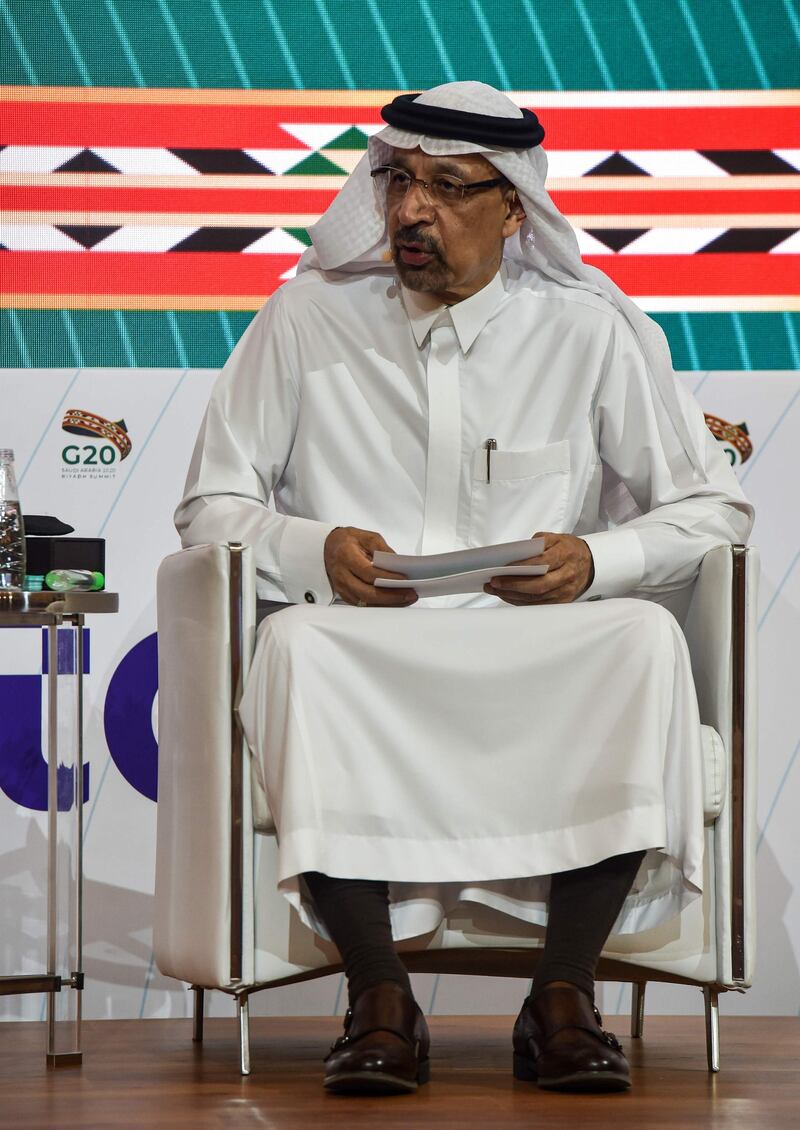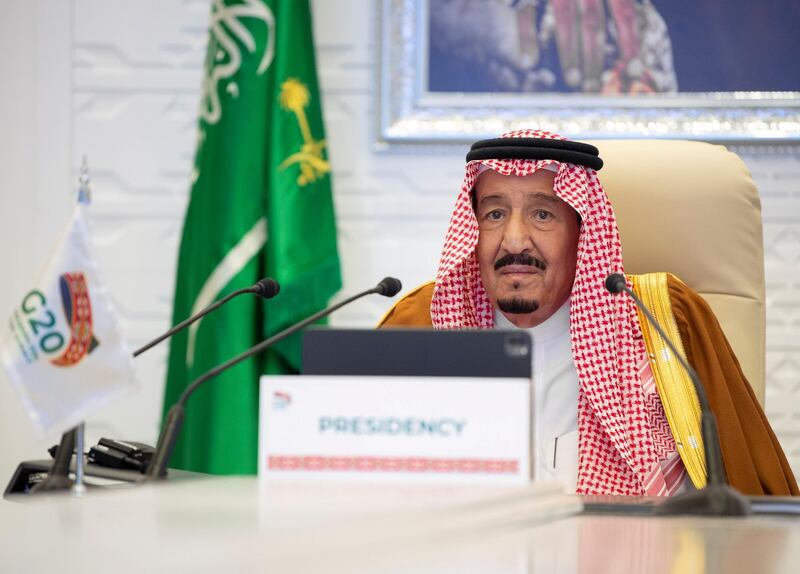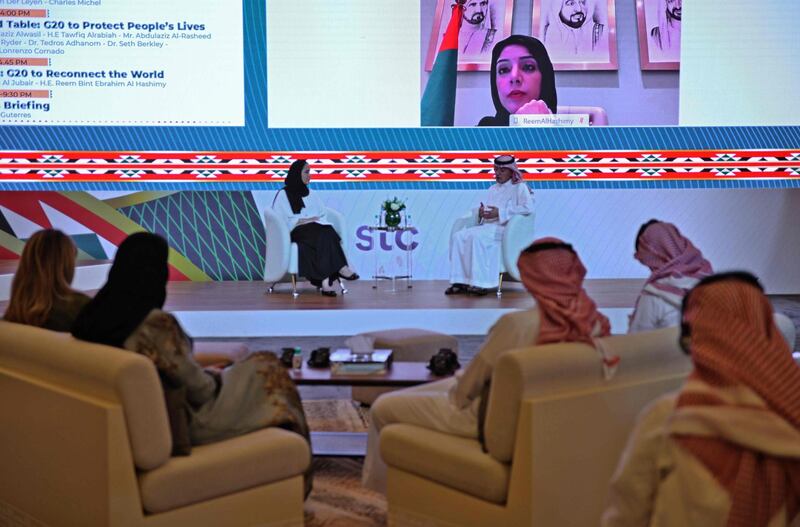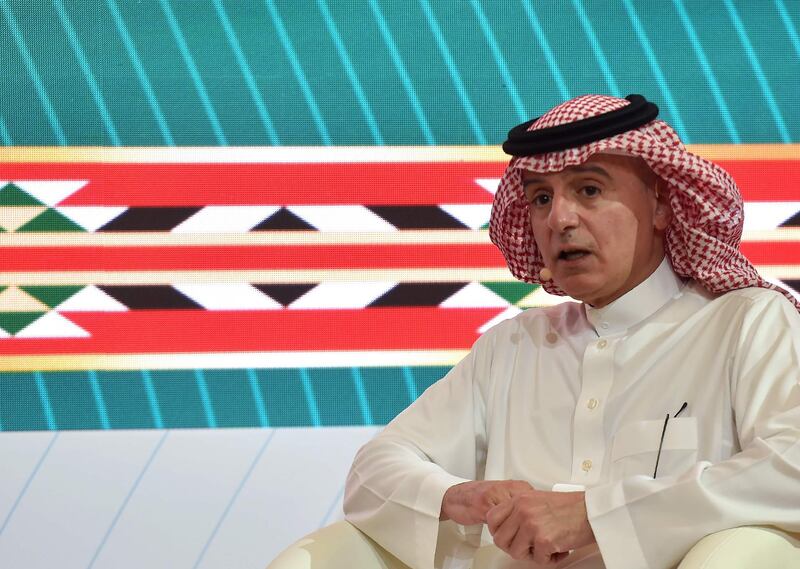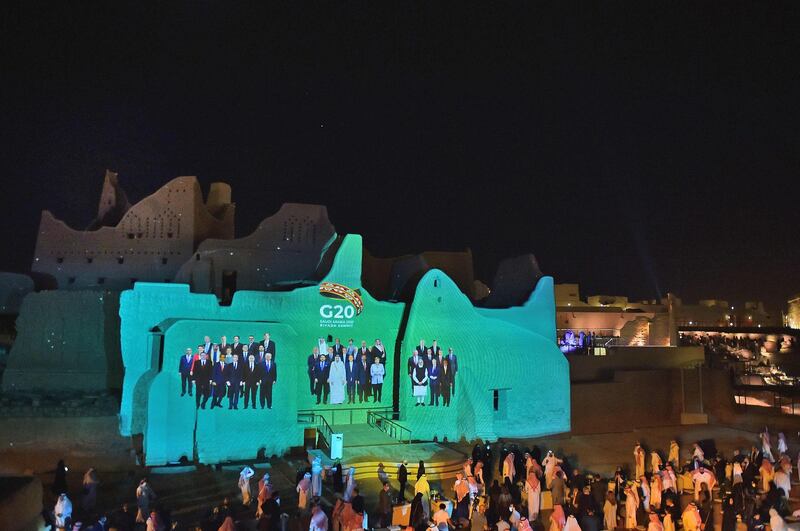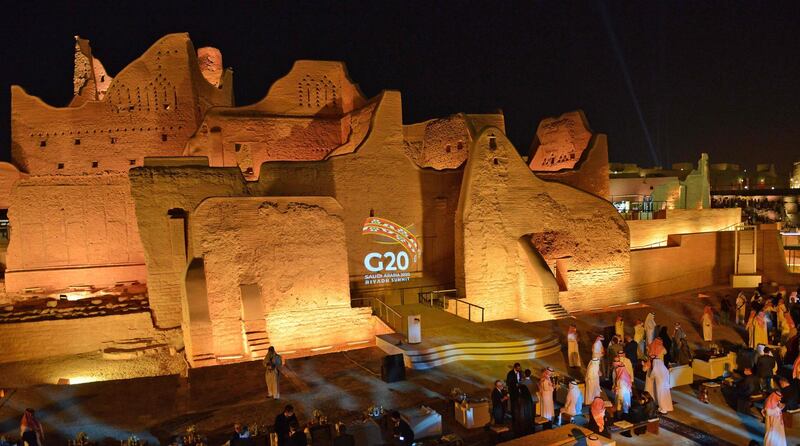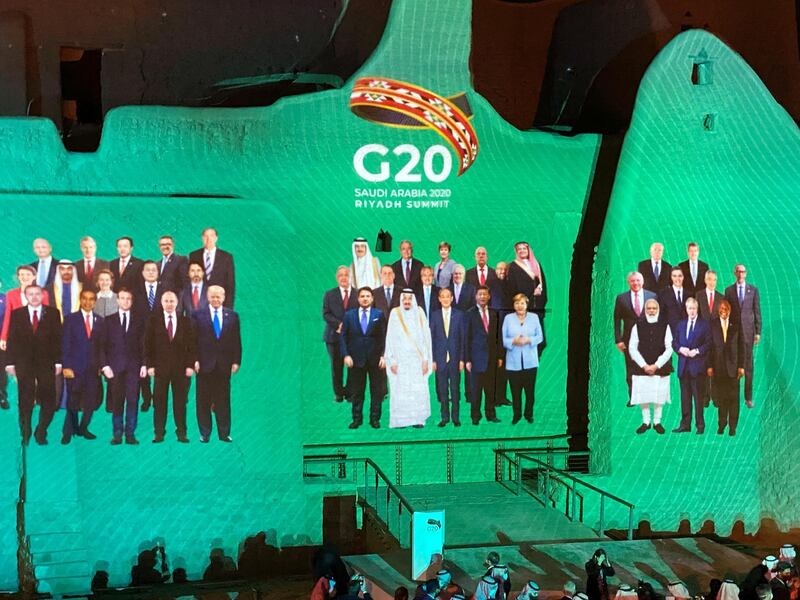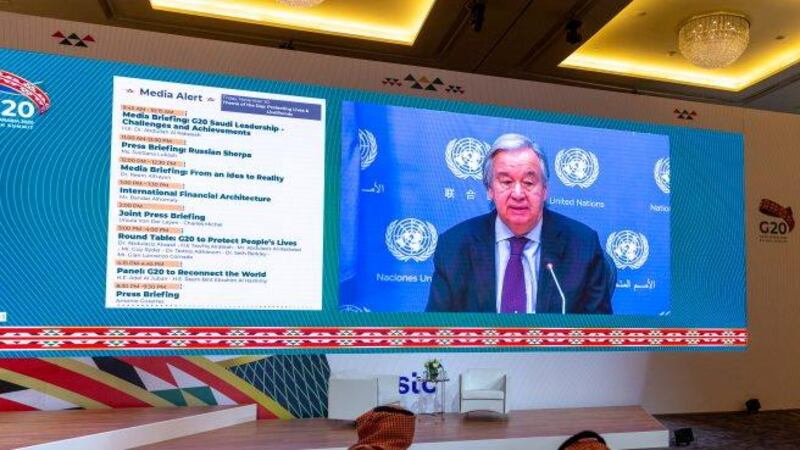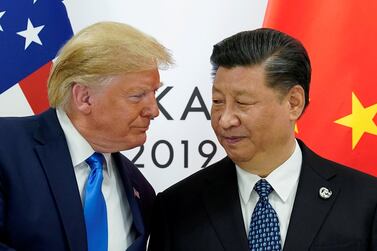The world's 20 biggest economies rose to the challenge to limit the effects of an unprecedented health and economic crisis this year, Saudi Arabia's investment minister said.
“The G20 and its presidency was called on to do something that has never been done, which is basically to save the world and to mitigate the effect of these crises going on concurrently,” Khalid Al Falih told a G20 media briefing on Saturday. “The entire group ... I have to give credit to every member of the G20 for rising to the challenge.”
The G20 leadership is meeting on Saturday and Sunday under Saudi Arabia's presidency. The two-day summit, held under the theme of Realising Opportunities of the 21st Century for All, is taking place online as the Covid-19 health crisis and the its economic reverberations continue.
The summit is the climax of an “extraordinary year for the G20”, whose members account for about 85 per cent of the world’s gross domestic product, Mr Al Falih said. At the beginning of the year, trade tensions were rising and countries were concerned that the long run of economic expansion could come to an end.
The pandemic pushed the world into “unprecedented territory”, the minister said. Economies around the world witnessed declines not seen since the Great Depression of the 1930s but joint efforts by the group softened the blow.
“We are now seeing that the global economy is contracting less than anticipated in recent months,” he said.
The anticipated contraction in the world’s advanced economies has been 2 per cent smaller than the International Monetary Fund projected in June, which shows how cooperation and multilateral efforts have paid off, Mr Al Falih said.
“The leader summit in March had a very decisive impact on how the year unfolded,” he added.
Since March, governments have rolled out nearly $12 trillion in fiscal stimulus, supported by about $7.5tn in monetary action taken by central banks. These measures have helped shore up the world's banking system and safeguard financial markets.
Covid-19 has infected about 58 million people and killed over 1.38 million, data from Worldometer shows. The International Monetary Fund expects global output to shrink 4.4 per cent this year and recover only modestly in 2021.
Mr Al Falih said the crisis is still not over and the “G20 is not complacent”.
The financial and economic track of the G20 – which helped shape policy responses through meetings of the group's finance ministers and central bank governors – proved important, he said.
Debt relief for needy countries has also been "a focus of the G20 and the presidency”, he said.
In April, G20 members agreed a Debt Service Suspension Initiative aimed at helping the world's poorest countries. G20 nations agreed to a time-bound suspension of debt repayments from 44 countries, making $14bn in funds available for fighting the pandemic.
Earlier this month, G20 finance ministers and central bank governors agreed on a new joint framework to restructure government debt owed by these nations.
The trade and investment track of the organisation has also helped to revive economic activity as the group has pushed for free trade and the continued flow of critical healthcare and agricultural products through ministerial meetings.
The World Trade Organisation now reports that 12 of the G20 countries have “actually reduced trade barriers and tariffs” that existed before the pandemic, Mr Al Falih said.
